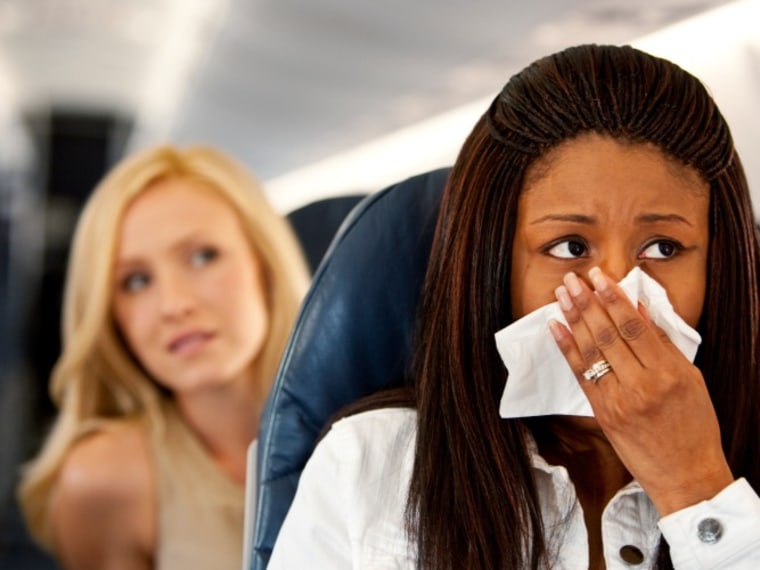Correction: An earlier version of this story included an interview with a source who later admitted he fabricated his story. His comments have been removed.
By Diane Mapes
You're checking out at the grocery store and the cashier sneezes into her hand, and then gives you your change. Or, a colleague at work insists on powering through the flu - at his desk next to you. Sometimes it's a friend who hugs you as she says she wanted to see you so much that she decided to keep your date for drinks even though she's not feeling well.
Many of us have found ourselves at the mercy of "that guy," the person who continues to work, play and fulfill social obligations even though he (or she) has the flu.
"That guy is the person who continues to go about his or her activities despite having influenza," says Dr. Susan Rehm, medical director for National Foundation for Infectious Diseases and vice chair of the department of infectious disease at Cleveland Clinic. "Nearly two thirds of the people in our recent survey said if they have influenza they were going to continue on."
The problem is, soldiering on is not only bad for your own health, it's bad for every else's since flu germs are highly contagious, says Anna Post of the Emily Post Institute, who's teamed up with the NFID to help educate people about proper flu etiquette.
"I think the biggest flu etiquette offense is knowing you have flu symptoms and still going out instead of making an appointment with your doctor," she says. "If you know you're not feeling well, you need to stay at home. That goes for work and travel and parties. And when it comes to kids, that means canceling play dates and keeping them home from school."
Rehm says the current flu season hasn't peaked yet so it's not too late to get vaccinated, one of the best ways to prevent the flu.
Outside of that, practicing good flu etiquette is crucial to stopping the spread of the germs, which can travel up to six feet in the air after a cough or sneeze and live for up to two hours on hard surfaces (like a door handle, elevator button or telephone).
What is proper flu etiquette?
According to Post, it's washing your hands often and/or always carrying alcohol-based hand sanitizer for yourself or for that sniffling someone sitting next to you. It's also sneezing into your shoulder or your elbow or even down the front of your shirt, especially when in confined spaces like an elevator or airplane. And it's refusing to shake hands with people if you're feeling sick or you think they might be.
"Just tell them 'I'm sorry, I feel like I'm coming down with something but it's nice to meet you,'" says Post. "And if they're sick, I would keep it simple and tell them, 'I'm sorry I can't shake hands but it's nice to meet you.' Or shake hands and then immediately wash up."
Both Rehm and Post say educating yourself about the flu is key, too, pointing out the handy acronym FACTS -- fever, aches, chills, tiredness and sudden onset -- as an easy way to tell what's influenza (a serious illness that kills between 4,000 and 40,000 and hospitalizes 200,000 people a year) and what's a common cold.
Do your co-workers come to the office sick? Tell us your pet peeves about others' illness on Facebook.
